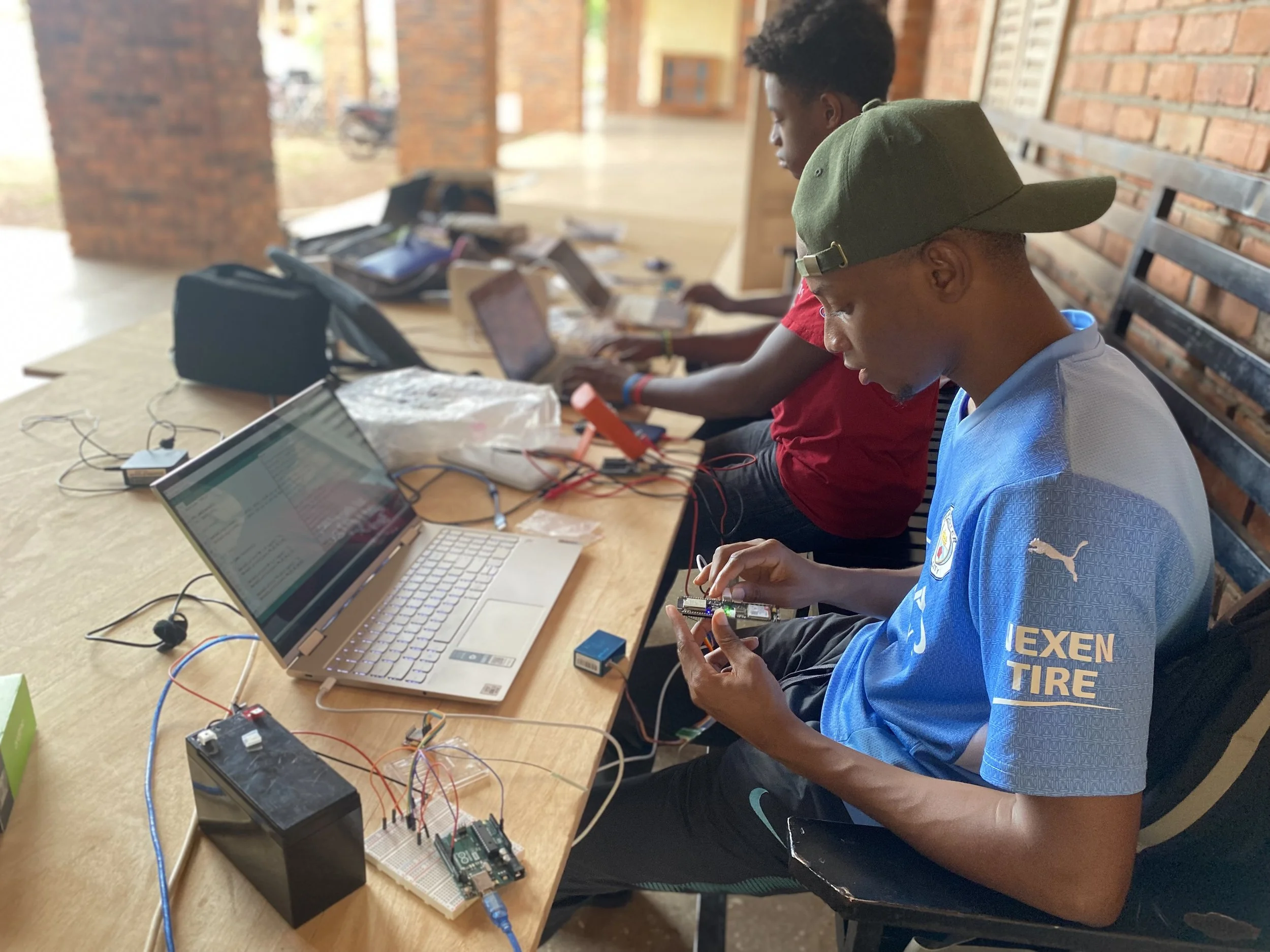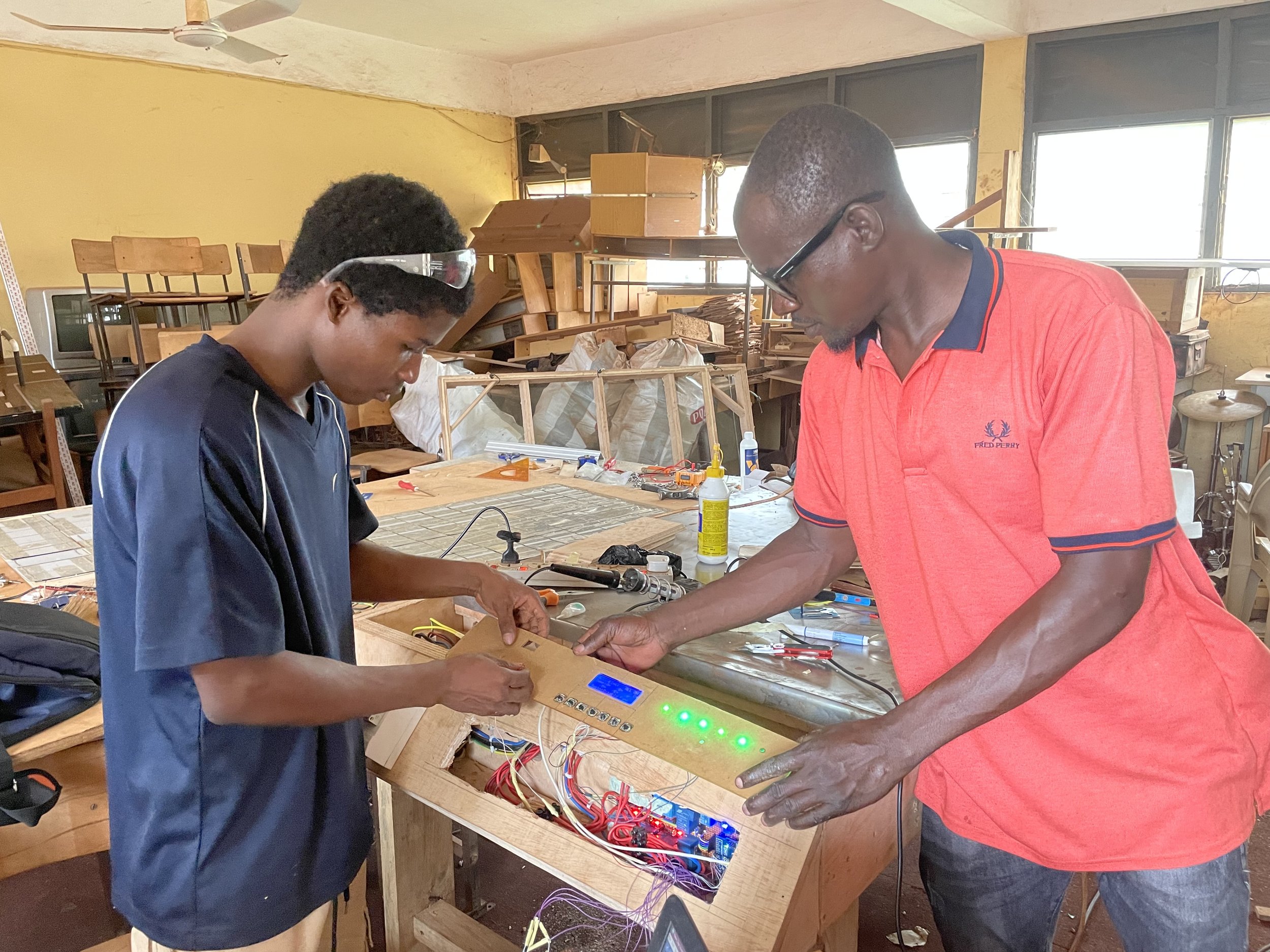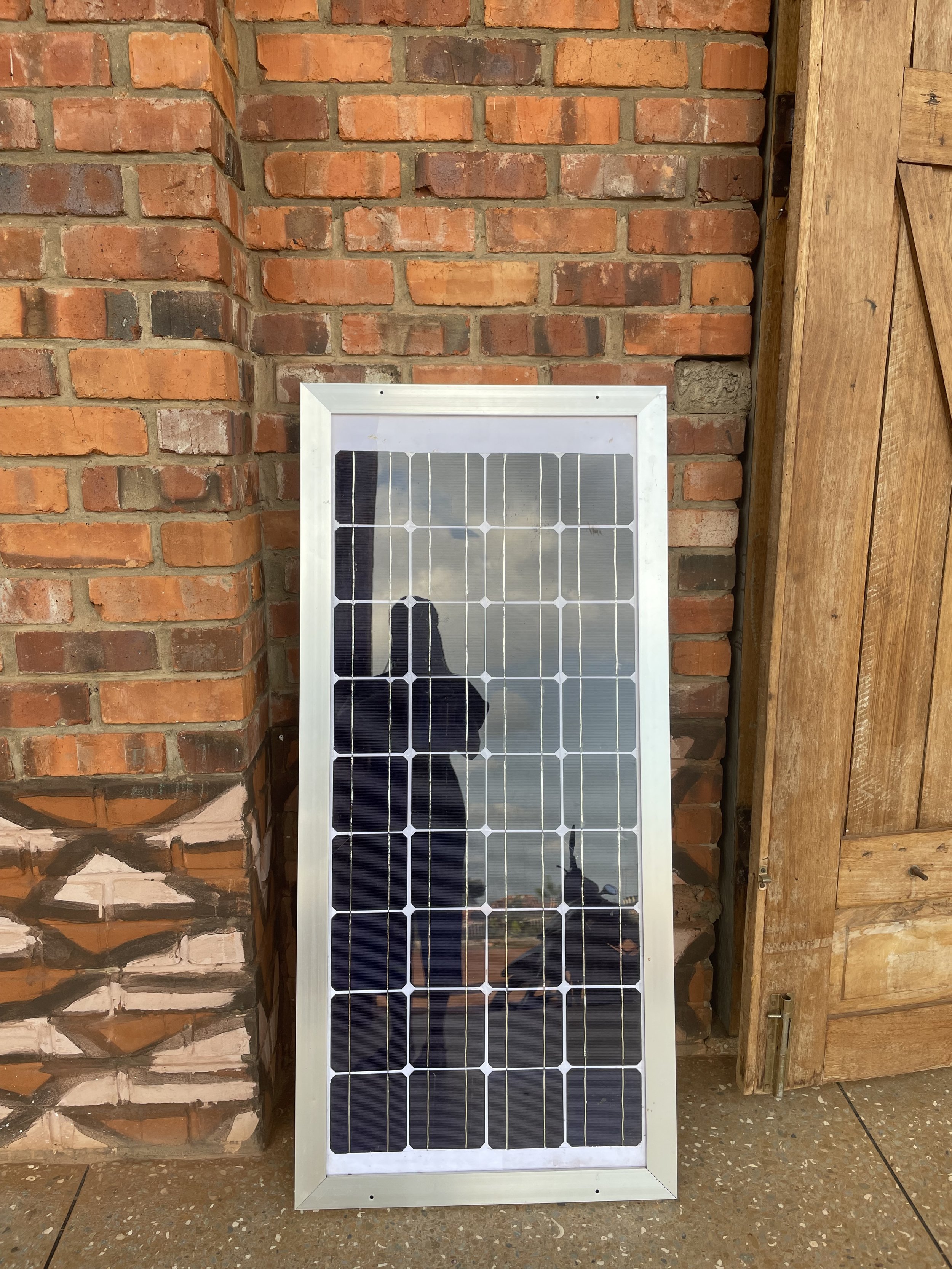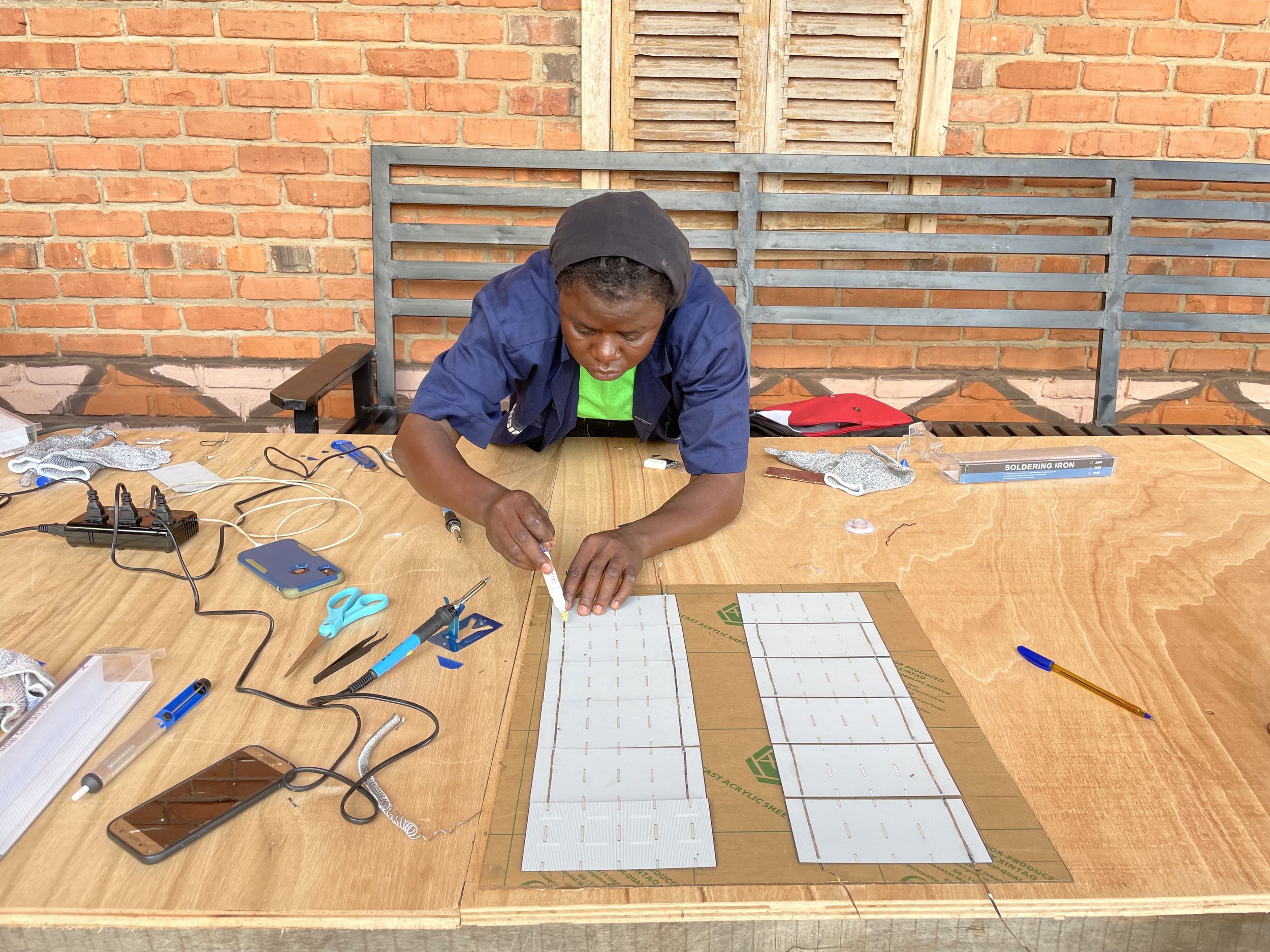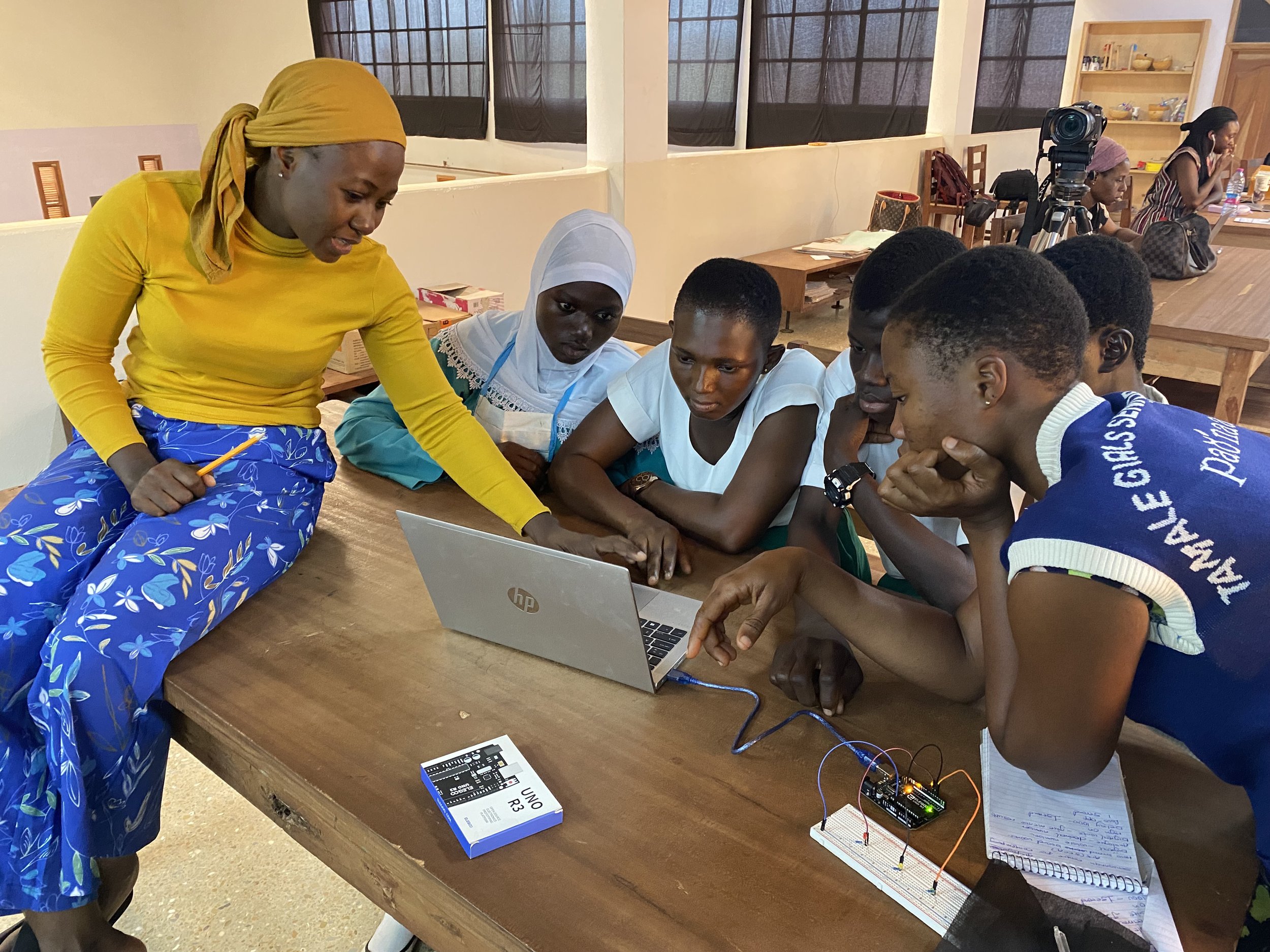Locally Built Solar Systems
An influx of cheap, defective solar panels have been introduced to the market. In response, locally assembled solar panels will be durable, directly fit the needs of communities and accurately respond to energy needs.
Our work:
Implements a bottom up approach to the market to ensure that our target communities, rural villages and first time solar users have access to durable clean energy.
Is located in the Northern region, an ideal place to trigger a taste for solar products due to its strong potential for solar energy generation.
Challenges the common perception among rural communities in the Northern Region, that solar is expensive by demonstrating it is possible to make solar cheaper with local materials.
Draws on the expertise and experience of a broad range of stakeholders to ensure a holistic approach and implementation.
We emphasize design and precise calculation to ensure quality products. The majority of our Ghanaian students and faculty partners grew up in the Northern Region and have deep connections to rural areas.
Additionally, we have also developed a sensor system to monitor the effectiveness of our prototype panels which we can monitor through our Dashboard built by Ashesi/Stanford University students and alumni. Our Tamale Technical University team built a sophisticated laminating machine to improve the quality of the panels.
K-12 Innovation Workshops
Over the past two summers, 300+ K-12 students from Tamale have participated in our Innovation Workshops led by our Ashesi/Stanford educational team teaching robotics, coding, Arduino and innovation, using a combination of found items and high technology. Our program centers on active learning, demonstrating how engineering skills can lead students towards innovative solutions for energy access and other pressing community challenges.
We work at the art spaces built by internationally renowned Ghanaian artist Ibrahim Mahama: Red Clay Art Studio and Savannah Centre for Contemporary Art (SCCA). Working at these spaces sparks innovative design thinking about the production of effective and durable green products that enhance indigenous traditions, generate creative reuse of ‘waste’ and utilize a cultural and artistic aesthetic to inform and imagine new tools to mitigate the impacts of climate change. Currently a green transition means near exclusive reliance on clean energy imports, which diminishes local modes of innovation and renders African intellectual and technological capacity marginal. Our model transforms this narrative and ensures that local knowledge is central to energy justice.
Burkina Faso:
Our work in Burkina Faso has unfortunately been suspended due to the ongoing conflict. In Burkina Faso we developed prototypes for: Solar Powered Poultry Egg Incubators & Portable Solar Lamps.
